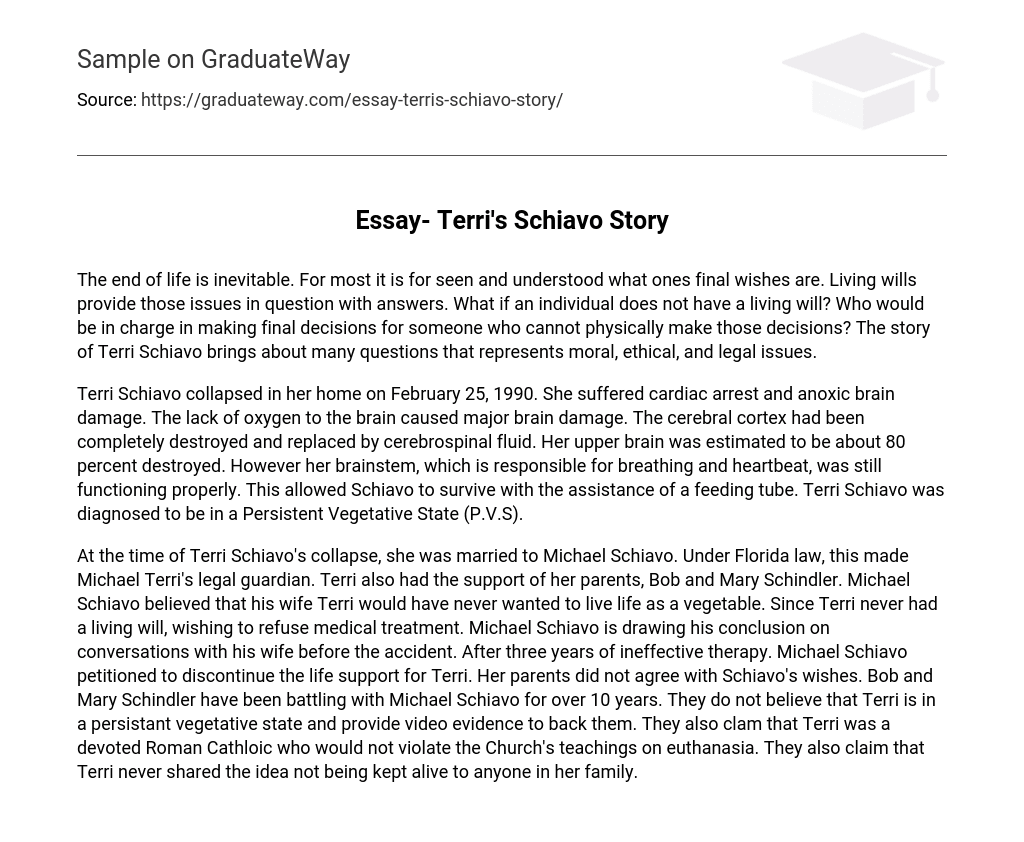Death is a universal event that everyone experiences, and many individuals have contemplated and established their final wishes. Living wills provide clarity in uncertain circumstances. However, what happens when someone does not possess a living will? Who would assume the responsibility of making crucial decisions for those who cannot do it themselves? The situation surrounding Terri Schiavo raises multiple moral, ethical, and legal dilemmas.
Terri Schiavo suffered a collapse at her home on February 25, 1990, leading to cardiac arrest and brain damage due to lack of oxygen. The cerebral cortex was extensively damaged and replaced by cerebrospinal fluid, resulting in the destruction of approximately 80 percent of her upper brain. However, her brainstem, responsible for regulating breathing and heartbeat, remained unaffected. As a result, she needed a feeding tube for sustenance. Terri Schiavo’s medical condition was identified as Persistent Vegetative State (P.V.S).
Terri Schiavo was married to Michael Schiavo when she experienced a collapse, and he became her legal guardian as per Florida law. Both Terri’s parents, Bob and Mary Schindler, were also supportive of her. Michael believed that Terri would not want to live in a vegetative state despite not having a living will stating her wishes regarding medical treatment. This belief was based on conversations they had before her accident. After three years of unsuccessful therapy, Michael sought permission to remove Terri’s life support; however, her parents disagreed with this decision. The Schindlers have been engaged in a legal battle with Michael for over ten years, arguing that Terri is not in a persistent vegetative state and presenting video evidence to support their claim. They further contend that as a devout Roman Catholic, Terri would adhere to the Church’s teachings against euthanasia. They also assert that no one in the family ever heard Terri express her desire not to be kept alive.





